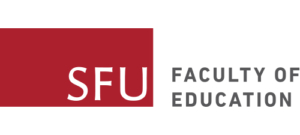In an era in which conventional wisdom is being rapidly upended, institutional authority is increasingly questioned, and the social contract is gravely threatened, professionals in all fields are summoned to respond with discernment, compassion, vision, and skillful practicality. It therefore behooves us educators in higher education, expecting such enlightened leadership, to provide education to professionals as they navigate through challenging, untraveled terrain. We cannot expect worthwhile ends without well-crafted means.
Our Master’s program in Contemplative Inquiry is about building the foundational capacity for exemplary professional conduct; leadership infused with wisdom, discernment, focus, and perspective; and inquiry that has depth and is holistically grounded in all parts of our being. What is this foundational capacity and how is it built? The short but precise answer: contemplative disposition and practice.
A longer answer: from contemporary neurobiological and psychological research literature, from advances in educational theory, research, and practice, as well as from studies in leadership and organizational management, evidence is clear that, for us to do our work well, meaningfully, effectively, and without succumbing to debilitating stress, it is crucial to have the capacity to stay centered, balanced, grounded, attuned to self and others, and capable of wise decision-making. Today’s professionals must have not only technical competence, but also relational skills. As well, they must have a deep and enduring capacity for vulnerability and compassion, and the capacity to not only be in the thick of things but also to “go to the balcony” and take in the broader perspective, integrating that knowledge into nurturing body, mind, and spirit.
Our Master’s program in Contemplative Inquiry builds such capacity through dialogic cohort community building, individual and collective cultivation of contemplative dispositions and skills, and enactment-based knowledge building in educational subject matters ranging over curriculum design, pedagogy, educational programming, assessment, leadership, embodiment, indigenous knowledge, arts-based inquiry, and social and moral philosophy/ethics. Our program is taught by instructors who themselves are ongoing learners and practitioners of various forms of contemplative inquiry and practice, and we endeavor to model what we espouse.

